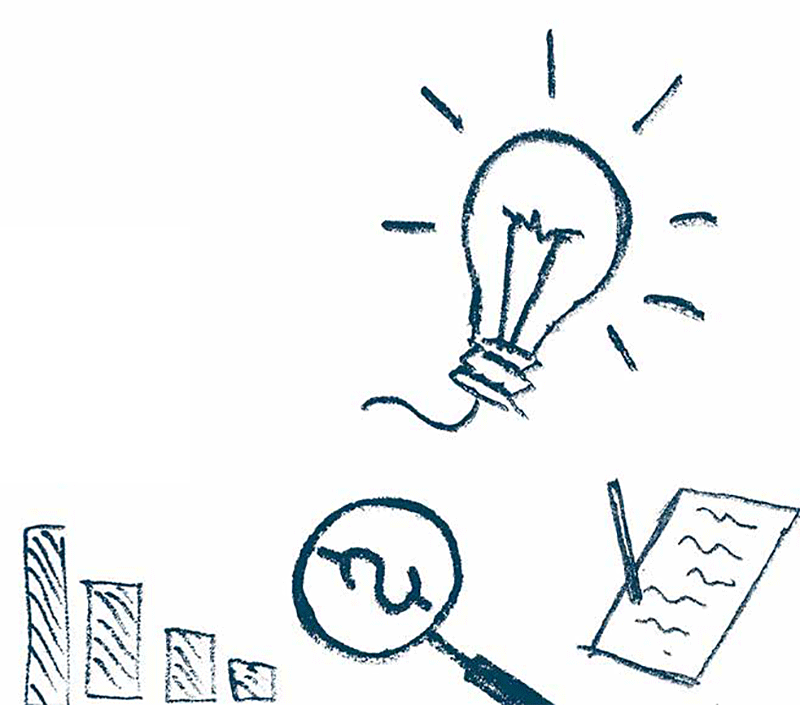Innovation & Prospective Developments
The CTP has once again signed a partnership agreement with the eco-organization CITEO, and is embarking on a number of new collaborative projects. It is also organizing itself for greater efficiency in the service of innovation.
The CTP moves up a gear in its cooperation with CITEO
Our cooperation with CITEO was set on a new footing these last years, with both parties very keen to move from a client-supplier relationship to a privileged «partnership»-type relationship. They share a single aim: speeding up the ongoing development of technologies and the associated know-how, to encourage the circular use of bio-based and renewable materials and reduce the impact of today’s society on the environment.
CITEO became a mission-led company (‘entreprise à missions’ under French law) in 2020 with the aim of helping economic players produce, distribute and consume while preserving our planet, its re-sources, biodiversity and the climate. Its financial support and the contributions from its Eco-design and Recycling teams are helping the CTP develop solutions for making recycled materials lighter and integrating them into products, improving re-cyclability, functionalising papers and boards and giving them new properties, optimising recycling processes, and addressing the health challenges of the circular economy.
The CTP stands out from other European institutes in that its activities and resources are geared as closely as possible to industrial needs, and this is reflected in its outcomes. It has acquired some unique pilot laboratory and industrial facilities and also benefits from being geographically and thematically close to the public laboratories of the Carnot PolyNat institute.
This dynamic, collaborative Grenoble-based research model is complemented by some European projects involving international teams.
An enhanced portfolio of projects
The Collective Research Program (PRC) is made up of collective projects, piloted and co-financed by the French industry, and collaborative projects financed by national or European calls for projects. These projects feed into the roadmaps, which are the operational applications of the three objectives set out in the Contract of Objectives and Performance.
Each year, between 3 and 6 new collective projects are developed with French manufacturers. Each year, the industry participates in the construction of the PRC through the Comité Enjeux Industriels et Innovation (CE2I), which reflects on developments and identifies potential opportunities and threats that could impact the industry, in order to frame projects.
As part of the process, a meeting is held at the beginning of the year to identify the challenges facing pulp-paper-cardboard production sites in terms of energy, regulations and changes in consumer purchasing habits. At the end of these discussions, a dozen projects are proposed by the CTP, whose relevance is assessed by the profession via an online survey. The best-rated projects are then the subject of joint development by the manufacturers and the CTP. This process involves around 60% of pulp-paper-board production sites, including nearly 80% of pulp production and 72% of paper-board production.
In addition, the CTP works a lot on collaborative projects, both European (Horizon Europe, CBE) and national (ANR), acting as coordinator or partner.
A new organisation focusing on innovation
The CTP has turned on a new organisation, redistributing the scope of each activity among a smaller number of operational teams. Concentrating management actions in the hands of fewer people frees up time to devote to R&D and value creation for industry.
Preventing the emergence of organisational silos, promoting cross-disciplinary actions, building links between the divisions and providing insight for discussions are the tasks of the newly-created «Scientific Coordination Committee». This committee includes a scientific adviser for each of the five new divisions, who is in charge of providing scientific leadership within his or her team and hel-ping to steer the CTP’s work through collective or collaborative projects.
A key feature of this new organisation is the appointment, in the Department of Innovation, of a European Projects Catalyst. She is helping to coordinate the process of putting together the Research Programme, setting up collaborative projects and establishing frameworks for cooperation, as well as applying the CTP’s intellectual property protection policy.

